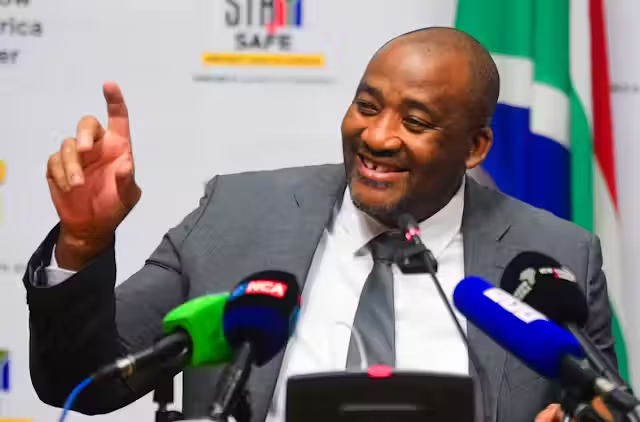Johannesburg, South Africa – Embattled Patriotic Alliance (PA) leader Gayton McKenzie has launched a multi-pronged defense against a career-threatening firestorm of racism allegations, blending defiance with moments of contrition. In a series of media appearances, including a detailed personal video and an exclusive interview with eNCA, McKenzie vehemently denies being a racist, instead blaming a political smear campaign for the uproar while simultaneously admitting his past social media conduct was “insensitive, stupid and hurtful.”
This slight but significant shift in tone from simply being an “asshole” to acknowledging his words were “hurtful” comes as he fights to reframe a narrative that has seen him branded a hypocrite and reported to the South African Human Rights Commission (SAHRC) for his own alleged anti-Black bigotry.
At the heart of McKenzie’s defense is a flat-out denial of the core accusation. “I am not a racist,” he has repeatedly stated, vowing to cooperate with any investigation. His strategy appears to be twofold: first, to contextualize and, in some cases, justify his past controversial statements; and second, to position himself as the victim of a political hit job.
In a lengthy self-produced video, McKenzie meticulously addressed the old tweets that have sparked the outrage:
- The Gandhi Quote: He claimed a tweet containing a derogatory term for Black people was a direct, attributed quote from Mahatma Gandhi, challenging viewers to verify it.
- Denial of Slur Usage: In his interview with eNCA and in his video, McKenzie was unequivocal in stating he has never used the “k-word.” He claims that in one instance where the word appeared in a thread, he was responding “Bullshit” to another user’s post, not using the term himself.
- The “Apes” Comment: He admitted to and expressed regret for a tweet in which he told Nigerian users their “women look like apes,” calling it a regrettable escalation during a heated “Twitter war” but insisting it’s a comment he would not make today.
- Clarifying “Black people will forever be poor”: He argued this statement was misinterpreted, claiming he was referring to the coloured community as “us” within the broader context of Black identity, not making a sweeping statement about all Black people.
Beyond the specific posts, McKenzie has leaned heavily on his personal identity and political actions as proof of his innocence. He has repeatedly invoked his “100% black Sotho mother” and his own experience with prejudice as a dark-skinned coloured man to counter the racist label. He also points to the PA’s multiracial appointments and its campaigning in predominantly Black areas as evidence that the party is not a racist entity.
While offering apologies for the “stupid and hurtful” nature of his past posts, McKenzie remains defiant about the motivations behind the backlash. He insists the controversy is not a genuine grassroots movement but an orchestrated campaign by political rivals who are threatened by the PA’s growing influence. “The time for coloured people to be treated as second-class citizens is over,” he declared, framing the attacks against him as an attack on his community’s political awakening.
By blending apologies for his tone with fierce justifications for his intent, Gayton McKenzie is walking a political tightrope. He is attempting to placate the public’s anger over his past conduct while simultaneously rallying his base with a narrative of political persecution. Whether this complex defense will be enough to repair his severely damaged public image remains to be seen.
